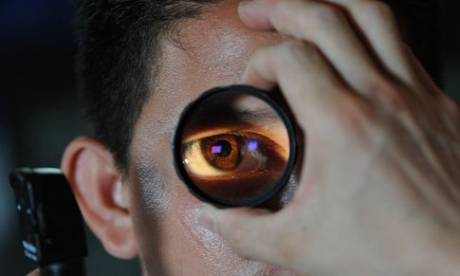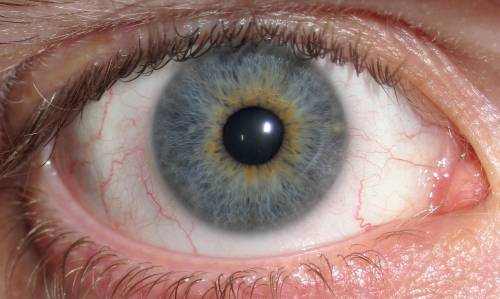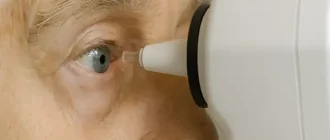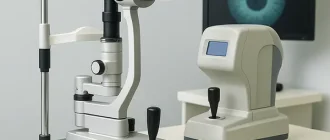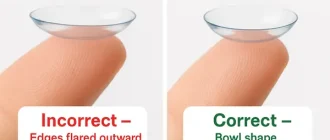Wearing contact lenses has become an essential part of life for millions, offering convenience and clarity without the hassle of glasses. However, certain situations, like showering, can bring up concerns. Is it safe to shower with your contacts in?
Percentage of Users Making Mistakes in Contact Lens Care
| Mistake | Percentage (%) |
|---|---|
| Sleeping in Contacts | 65% |
| Rinsing with Tap Water | 50% |
| Wearing Expired Lenses | 40% |
| Skipping Cleaning Routine | 35% |
| Using Saliva to Clean Lenses | 20% |
This chart showcases the most common mistakes made by contact lens users, with sleeping in contacts topping the list at 65% and using saliva as a cleaning agent at 20%. Proper lens care is crucial for maintaining eye health.
Why It’s Risky to Shower With Contacts
Contact lenses are designed to sit on the surface of your eye, creating a delicate balance between comfort and functionality. However, water—whether from a shower, pool, or tap—can upset this balance. Here are some reasons why:
- Exposure to Harmful Microorganisms Water, even from clean sources, can harbor microorganisms like Acanthamoeba. This tiny organism can cause Acanthamoeba keratitis, a severe infection that can lead to vision loss if not treated promptly. Contact lenses can trap these organisms against your cornea, increasing the risk of infection.
- Lens Damage and Warping Contact lenses, especially soft ones, are highly absorbent. Exposure to water can cause them to swell, warp, or stick to your eye. This not only makes them uncomfortable but also risks scratching your cornea.
- Loss of Disinfectant Properties Water can wash away the sterile surface of your contact lenses, leaving them more susceptible to bacterial contamination. Tap water isn’t sterile and can introduce harmful bacteria.
What Experts Recommend
Health professionals, including optometrists and ophthalmologists, strongly advise against exposing your contacts to any water, including while showering. The American Academy of Ophthalmology (AAO) and the Centers for Disease Control and Prevention (CDC) emphasize the importance of keeping lenses away from water to reduce the risk of infection.
Practical Tips for Contact Lens Wearers
If you wear contact lenses, here are some tips to maintain eye health and hygiene:
- Remove Contacts Before Showering Taking a minute to remove your lenses before stepping into the shower is the safest approach. Store them in a clean case with fresh disinfecting solution.
- Wear Glasses Instead On days when you plan to shower or swim, opt for glasses. They’re a safer alternative to wearing contacts in wet environments.
- Use Daily Disposable Lenses If you occasionally forget to remove your contacts before showering, consider using daily disposables. This way, you can discard them after each use, reducing the risk of contamination.
- Carry a Backup Pair of Glasses Always have a pair of glasses handy. This ensures you have a safe vision option when you need to remove your lenses.
Comparison of Contact Lens Care Methods
| Method | Effectiveness (%) |
|---|---|
| Multi-Purpose Solution | 85% |
| Hydrogen Peroxide Solution | 95% |
| Saline Solution | 60% |
| Tap Water (Not Recommended) | 20% |
This chart compares the effectiveness of different contact lens care methods, highlighting hydrogen peroxide solution as the most effective and tap water as the least recommended.
Real-Life Consequences of Showering With Contacts
Let’s consider a case study: A 29-year-old woman from Chicago developed a severe eye infection after wearing her contact lenses in the shower. Doctors diagnosed her with Acanthamoeba keratitis, which required months of treatment and left her with permanent vision impairment. Her experience underscores the importance of following proper contact lens hygiene.
Expert Advice
Health Care Advisor Reyus Mammadli recommends prioritizing safety over convenience: “It’s a small inconvenience to remove your contacts before showering, but it’s a critical step in preserving your vision. Always follow your optometrist’s guidelines for lens care and hygiene.”
Time Spent on Contact Lens Care Per Week
This horizontal bar chart highlights the average time spent on caring for different types of contact lenses per week, with daily lenses requiring the least time and monthly lenses the most.
Similarly, Dr. Susan White, a leading ophthalmologist, advises: “Never underestimate the dangers of water exposure to contact lenses. Even a single drop of contaminated water can lead to serious infections.”
In addition, optometry specialist Dr. Alan Green highlights: “Investing in daily disposable lenses can be a game-changer for avoiding unnecessary risks related to water contact.”
FAQs
1. What should I do if I accidentally shower with my contacts?
- Remove your lenses immediately and rinse your eyes with sterile saline solution. Clean and disinfect your lenses before wearing them again.
2. Can I wear waterproof contacts in the shower?
- No contact lenses are truly waterproof. Even lenses marketed as “water-resistant” should not be exposed to water.
3. Is swimming with contacts just as risky as showering?
- Yes, swimming with contacts poses similar risks, especially in lakes, rivers, and pools. Always wear goggles if you must keep your contacts in.
4. Are hard lenses safer than soft lenses in water?
- Hard lenses are less absorbent than soft lenses, but they’re still not recommended for use in water. The risk of infection remains.
5. Can I rinse my lenses with tap water?
- Never rinse your lenses with tap water. Always use sterile saline solution or contact lens disinfecting solution.
6. What happens if my lenses dry out after exposure to water?
- If your lenses dry out, do not attempt to rehydrate them with water. Use lens rewetting drops or a proper solution.
7. Should I see a doctor if my eyes feel irritated after water exposure?
- Yes, consult an eye care professional if you experience redness, irritation, or discomfort after water exposure.
8. Are there any specific goggles for contact lens wearers?
- Prescription goggles are a great option for contact lens wearers who need vision correction while swimming or showering.
Editorial Advice
While contact lenses offer convenience, proper care and usage are vital for maintaining eye health. Avoid exposing your lenses to water, and always prioritize hygiene. The extra steps may seem tedious, but they’re well worth protecting your vision for the long term.
